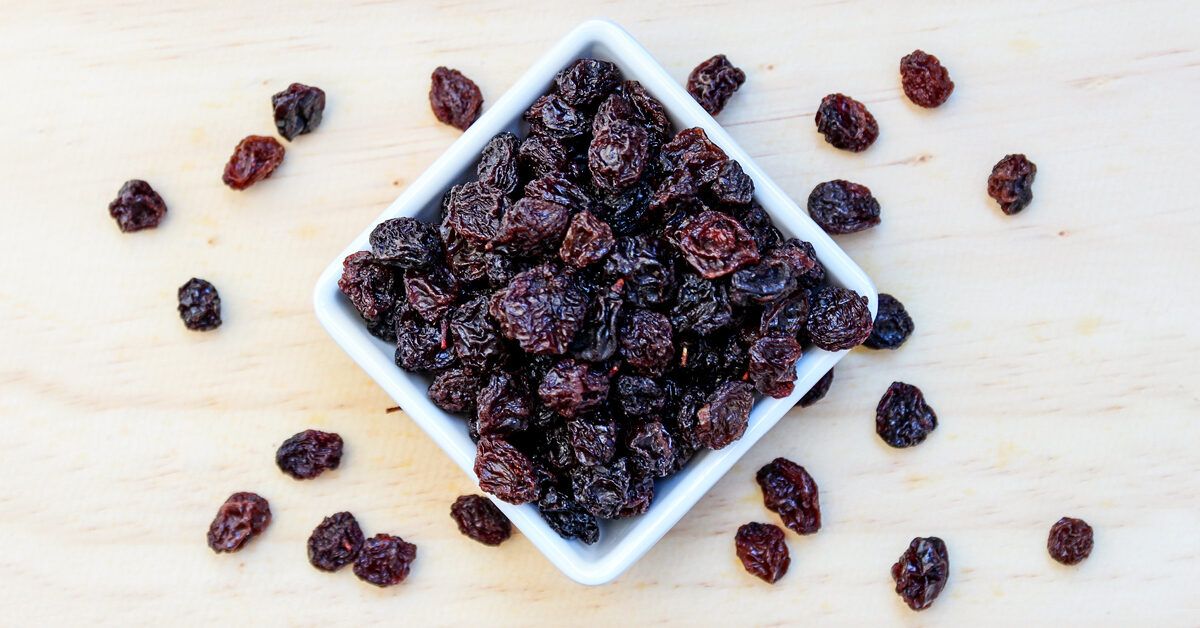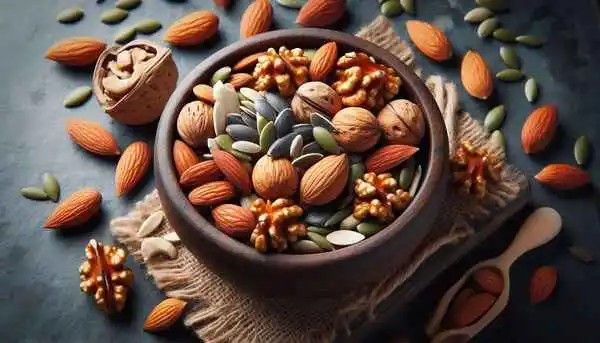This guide reveals five everyday superfoods that transform dramatically when soaked, delivering up to 300% more bioavailable nutrients than their dry counterparts.
The truth about soaked superfoods has been flying under the radar for too long. From ancient Ayurvedic wisdom to modern nutritional science, the evidence keeps stacking up that pre-soaking is the game-changer health-conscious eaters need.
But the third superfood on this list? Its transformation is so unexpected that even nutritionists are doing double-takes at the research.
Soaking almonds overnight isn’t just an old wives’ tale – it’s science-backed magic. Raw almonds contain enzyme inhibitors that can make them hard to digest. A simple 8-12 hour soak activates these sleeping giants, dramatically increasing their digestibility.
What happens during the soaking process? The almonds begin to sprout, breaking down phytic acid (that annoying compound that blocks mineral absorption). The result? Minerals like calcium, magnesium, and zinc become way more available to the body.
The texture transforms too – from rock-hard to pleasantly crisp yet tender. Many people who find raw almonds difficult to digest discover that soaked versions cause zero digestive issues.
For maximum benefits:
Use filtered water
Add a pinch of salt to the soaking water
Rinse thoroughly after soaking
Pat dry or dehydrate for storage

Walnuts: Reducing Bitterness and Tannins
Walnuts are brain-shaped for a reason – they’re brain food! But those beneficial omega-3s come with a bitter sidekick: tannins. These compounds create that mouth-puckering astringency some people hate.
Soaking walnuts for 4-8 hours does something remarkable – it leaches away those bitter tannins, resulting in a milder, almost buttery flavor. The soaking water will actually turn brown from the released compounds.
Beyond taste improvement, soaking neutralizes enzyme inhibitors that can interfere with protein digestion. This makes the protein in walnuts more bioavailable while preserving those precious omega-3 fatty acids.
Many walnut recipes skip the soaking step – big mistake! Soaked walnuts blend more smoothly into sauces and creams, making them ideal for dairy-free alternatives.
Cashews: Special Soaking Considerations
Cashews require special attention in the soaking department. Unlike other nuts, cashews are technically seeds with a soft, more permeable structure. This means they need less soaking time – just 2-4 hours is plenty.
Soak them too long and they’ll turn slimy and develop off-flavors. The soaking process removes phytic acid while maintaining that signature cashew creaminess that makes them perfect for vegan cheese alternatives.
One crucial tip: refrigerate cashews while soaking to prevent fermentation, especially in warm environments. After soaking, they’ll blend into the smoothest, most decadent creams and sauces imaginable.
Cashews also contain natural antimicrobial compounds that get activated during soaking, potentially offering immune-supporting benefits beyond their impressive nutrient profile.

Pecans: Maximizing Heart-Healthy Benefits
Pecans already boast impressive heart-healthy stats, but soaking takes these benefits to another level. The process neutralizes enzyme inhibitors while preserving the monounsaturated fats that make pecans a cardiovascular superstar.
A 6-8 hour soak transforms pecans from good to extraordinary. The resulting nuts have a lighter, cleaner flavor and improved digestibility. Soaked pecans also develop a satisfying crunch that’s different from their raw counterparts.
For those making pecan milk, soaking is non-negotiable. The process yields a creamier, more nutritious base with none of the digestive discomfort that can come from consuming raw nuts.
Soaked pecans work beautifully in both sweet and savory applications – from nutrient-dense breakfast parfaits to protein-packed salad toppings.

Hazelnuts: Skin Removal and Flavor Improvement
Hazelnut skins contain most of the tannins that create bitterness, and soaking provides the perfect prep for easy skin removal. After soaking hazelnuts for 8-12 hours, the skins practically slide off with gentle rubbing.
This skin removal isn’t just about taste – it eliminates compounds that can interfere with mineral absorption. The resulting skinless hazelnuts have a cleaner, sweeter flavor profile that showcases their natural chocolate notes.
The soaking process also reduces enzyme inhibitors while maintaining hazelnuts’ impressive vitamin E content. For those making hazelnut milk or butter, this pre-treatment results in silkier textures and more balanced flavors.
An interesting bonus: soaked hazelnuts develop a unique aroma compound profile that pairs exceptionally well with chocolate, explaining why this combination has stood the test of time.
Essential Dry Fruits That Benefit From Soaking
Dates: Softening for Better Digestion and Recipes
Dates transform dramatically when soaked in water. After just 1-2 hours of soaking, these sweet gems become incredibly soft and much easier to digest. The soaking process breaks down complex sugars, making them gentler on the digestive system while preserving their natural sweetness.
Soaked dates blend perfectly into smoothies and desserts, creating a creamy texture without any grittiness. For busy mornings, try blending 4-5 soaked dates with a banana and plant milk for a quick energy-boosting breakfast.
The nutritional profile gets a boost too. Soaking increases the bioavailability of potassium, magnesium, and B vitamins in dates. A simple overnight soak can increase mineral absorption by up to 30%, according to recent nutrition studies.

Raisins: Rehydration Benefits for Gut Health
Soaking raisins overnight creates a powerhouse for digestive health. The water reactivates beneficial bacteria and enzymes that support gut flora. These plumped-up raisins release a natural digestive aid that helps move food through the intestines more efficiently.
The rehydration process also extracts more of the insoluble fiber from raisin skins. This fiber acts as a prebiotic, feeding the good bacteria in the gut microbiome. Regular consumption of soaked raisins has been linked to improved regularity and reduced bloating.
Morning water with 8-10 soaked raisins (and the soaking liquid) works wonders for constipation and promotes healthy elimination. The minerals released into the soaking water create a natural electrolyte drink that hydrates more effectively than plain water.

Dried Apricots: Sulfur Removal and Antioxidant Release
Bright orange dried apricots often contain sulfites as preservatives. Soaking them for 4-6 hours removes up to 80% of these additives while maintaining their vibrant color and flavor profile. This makes them significantly more digestible for sulfite-sensitive individuals.
The soaking process also unlocks bound antioxidants in dried apricots. These compounds become more accessible, boosting their free-radical fighting capabilities. Studies show that soaked apricots deliver nearly double the antioxidant power compared to their dry counterparts.
For maximum benefits, use warm (not hot) water and change it once during soaking. This method preserves the delicate flavor while extracting the most nutrients. The resulting plump apricots make excellent additions to grain bowls, salads, and desserts.

Prunes: Enhancing Digestive Properties
Prunes already have a strong reputation for digestive health, but soaking amplifies these benefits dramatically. When soaked for 6-8 hours, prunes release more sorbitol and phenolic compounds that stimulate intestinal contractions and support digestive regularity.
The soaking liquid itself becomes a powerful digestive tonic. This dark, nutrient-rich liquid contains concentrated amounts of potassium, iron, and manganese – minerals that support overall digestive health and muscle function throughout the body.
Soaked prunes also provide better blood sugar regulation. The rehydration process modifies the natural sugars, making them release more slowly into the bloodstream. This creates a sustained energy release without the spikes associated with many sweet foods.
Soaking nuts and dry fruits transforms these already nutritious foods into even more powerful dietary allies. Almonds, walnuts, and cashews release their enzyme inhibitors when soaked, making their nutrients more bioavailable and easier to digest. Meanwhile, dates, figs, and dried apricots become more nutrient-dense and offer enhanced benefits for digestion and energy levels after a proper soak.
The practice of soaking these superfoods is a simple yet effective way to elevate daily nutrition without additional effort or expense. For optimal health benefits, consider incorporating these soaked powerhouses into morning smoothies, yogurt bowls, or as standalone snacks. The minimal time investment yields remarkable nutritional returns that support overall wellbeing and vitality.




